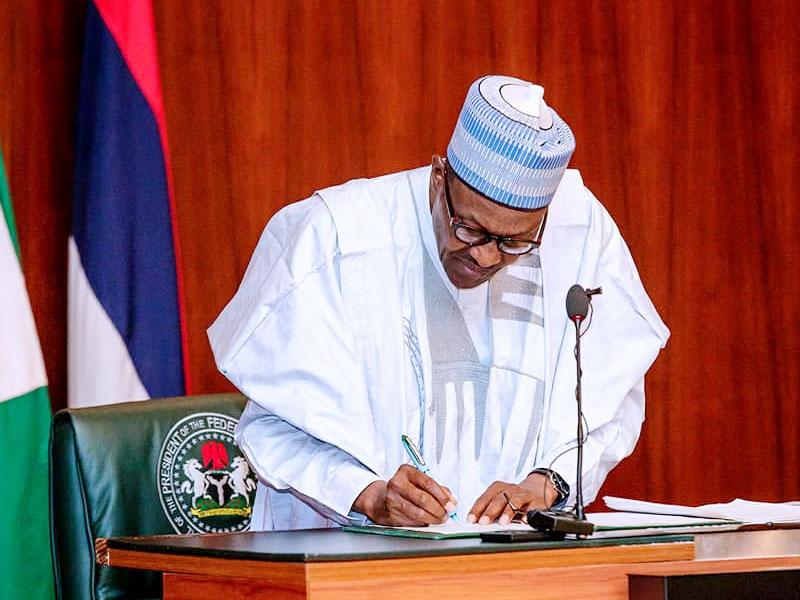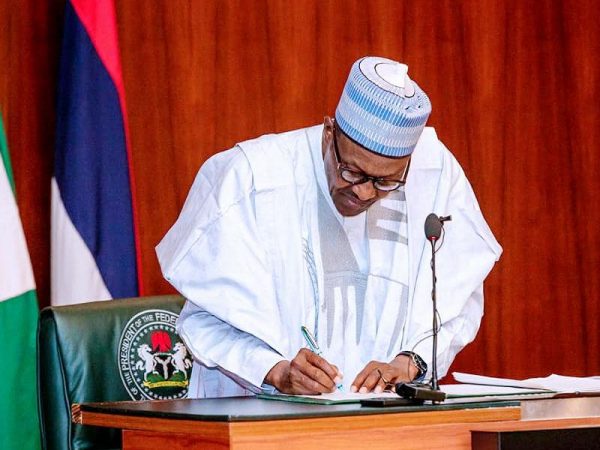Earlier this afternoon after much debate among Nigerians and the feet-dragging by the Presidency, the President, Muhammadu Buhari, has finally signed Electoral Act Amendment Bill 2022 into law. The president granted his assent to the Bill at the Council Chamber of the Presidential Villa in Abuja, on Friday. In attendance were the Vice President, Professor Yemi Osinbajo; President of the Senate, Ahmed Lawan, and Speaker of the House of Representatives, Femi Gbajabiamila.
Read more about Politics
In a statement, Nigeria’s number one citizen, said by established tradition, he received contributions from relevant ministries, departments and agencies of government after meticulous and thorough examinations of the Bill and its significance to democratic processes in Nigeria.
According to the President:
“It is gratifying to note that the current Bill comes with a great deal of improvement from the previous Electoral Bill 2021. There are salient and praiseworthy provisions that could positively revolutionize elections in Nigeria through the introduction of new technological innovations. These innovations would guarantee the constitutional rights of citizens to vote and to do so effectively.
“The Bill would also improve and engender clarity, effectiveness and transparency of the election process, as well as reduce to the barest minimum incidences of acrimony arising from dissatisfied candidates and political parties.
“These commendable efforts are in line with our policy to bequeath posterity and landmark legal framework that paves the way for a credible and sound electoral process that we would all be proud of.”
Many Nigerians have applauded the move by the President. The significance of the Bill has been interpreted by several stakeholders and public analysts. Below are some of the significance of the bill:
Sign up to the Connect Nigeria daily newsletter
First, under the Bill, there shall be an early release of election funds to INEC. Under Clause 3(3) of the bill, it states that all funding needed for a general election is disbursed not later than one year before the general elections. This will enable the electoral body to prepare well in advance.
Secondly, under Clause 50 of the bill, there shall be the electronic transmission of results. INEC has the authority to decide if the results can be sent electronically or manually.
Thirdly, Clause 65 of the electoral bill authorizes INEC authority to evaluate declarations and returns made under dubious circumstances. This means that anyone dissatisfied with any result released under duress can call for redress.
Fourthly, under the bill in Clause 8(5), political neutrality of INEC personnel must be observed. This indicates that a politician or member of a political party cannot be an INEC official. Anyone guilty of this will be fined the sum of N5,000,000.
Fifthly, Clause 47 of the bill provides for the legislation for electronic voter accreditation using Smart Card Readers or any other technical equipment determined by INEC.
Finally, under the electoral bill, Clause 51, states that the “total number of accredited voters” will become a deciding factor in the election’s legality.
In conclusion, the bill also provides for early conduct of party primaries and submission of candidates’ lists as provided under Clause 29(1) of the 2022 electoral bill.
Featured image source: Vanguard News
Got a suggestion? Contact us: [email protected]


